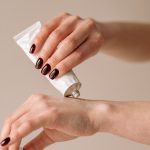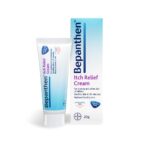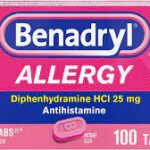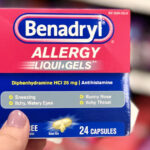Why Has Benadryl Cream Been Discontinued?
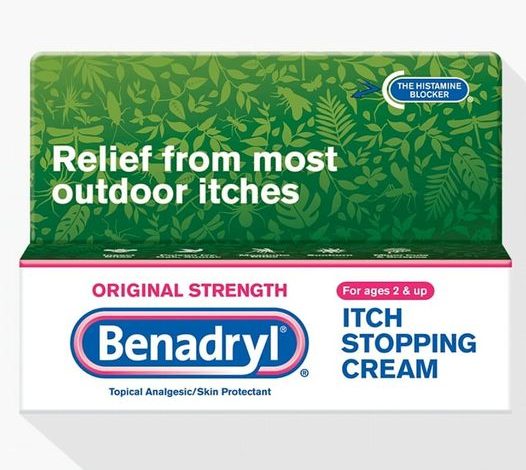
Benadryl Itch Stopping Cream is a topical medication containing Diphenhydramine hydrochloride and Zinc acetate. It temporarily relieves pain and itching associated with:
- Insect bites
- Minor burns
- Sunburn
- Minor skin irritations
- Minor cuts
- Scrapes
- Rashes due to poison ivy, poison oak, and poison sumac
Dries the oozing and weeping of poison ivy, poison oak, and poison sumac.
Diphenhydramine belongs to a class of drugs known as antihistamines. It works by blocking the effects of a certain natural substance (histamine) that causes itching. This product may also contain other ingredients (skin protectants such as allantoin, zinc acetate) that may help relieve symptoms such as dry skin, weeping, or oozing. Read the product package for more information.
Depending on the brand and the form of diphenhydramine skin product you are using, the package information may state that its use is not recommended in children younger than 2, 6, or 12 years unless directed by the doctor. If you are self-treating with this medication, it is important to read the package instructions carefully before you start using this product to be sure it is right for you.
Has Benadryl Itch Stopping Cream been discontinued?
No, Benadryl Itch Stopping Cream has not been discontinued. However, The U.S. Food and Drug Administration (FDA) received reports of adverse events in consumers who mistakenly swallowed Benadryl Extra Strength Itch Stopping Gel because they were similar to over-the-counter liquid Benadryl products intended to be swallowed.
Swallowing Benadryl cream can result in people receiving dangerously large amounts of the active ingredient, diphenhydramine. This can result in serious adverse events, such as unconsciousness, hallucinations, and confusion.
To help consumers recognize that Benadryl Extra Strength Itch Stopping Gel is meant for use on the skin, the manufacturer, Johnson and Johnson, has taken the following actions:
• Changed the product label to add a new, prominent statement “For Skin Use Only.”
• Attached a sticker to the cap of the product that says “For Skin Use Only.”
• Initiated consumer studies to better understand factors that may contribute to consumers mistakenly swallowing Benadryl Extra Strength Itch Stopping Gel.
Many pharmacies and grocery stores sell other diphenhydramine topical gels that look very similar in packaging to Benadryl Extra Strength Itch Stopping Gel. It is important that consumers not mistakenly swallow these products too. Swallowing these products can also result in adverse events.
FDA stated that it encourages manufacturers of similar products to follow Johnson and Johnson’s example and adopt similar changes to their labeling and packaging.
How to use safely use Benadryl Itch Stopping Cream
- Use Benadryl Itch Stopping Cream only on the skin as directed by your doctor. If you are self-treating, follow all directions on the product package. If you have any questions, ask your doctor or pharmacist. Some products may need to be shaken well before use.
- Before applying Benadryl Itch Stopping Cream, clean the affected area with soap and water. Gently pat dry. Apply to the affected area as directed, usually no more than 3 to 4 times a day. Wash hands immediately after use, unless the area being treated includes the hands.
- Do not use on large areas of the body or use more often than directed. Your condition will not improve any faster, and your risk of side effects will increase.
- Avoid getting the product in your eyes, nose, ears, or mouth. If the Benadryl Itch Stopping Cream gets in these areas, wipe it off and rinse the area right away with water.
- Stop using Benadryl Itch Stopping Cream and tell your doctor if your condition worsens, if symptoms do not improve within 7 days or persist after 7 days of treatment, or if symptoms clear up and return in a few days. If you think you may have a serious medical problem, seek immediate medical attention.
Benadryl Itch Stopping Cream remains a safe and effective medication.

